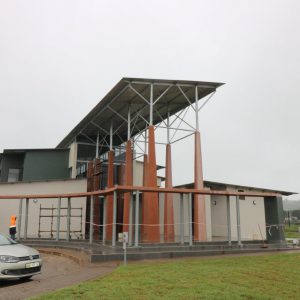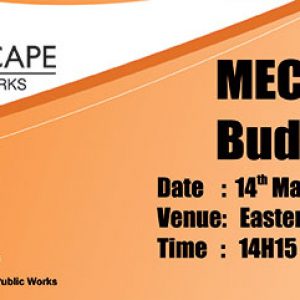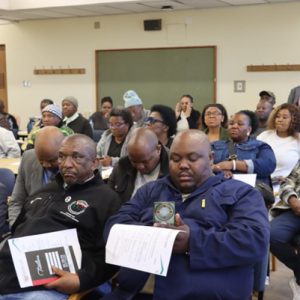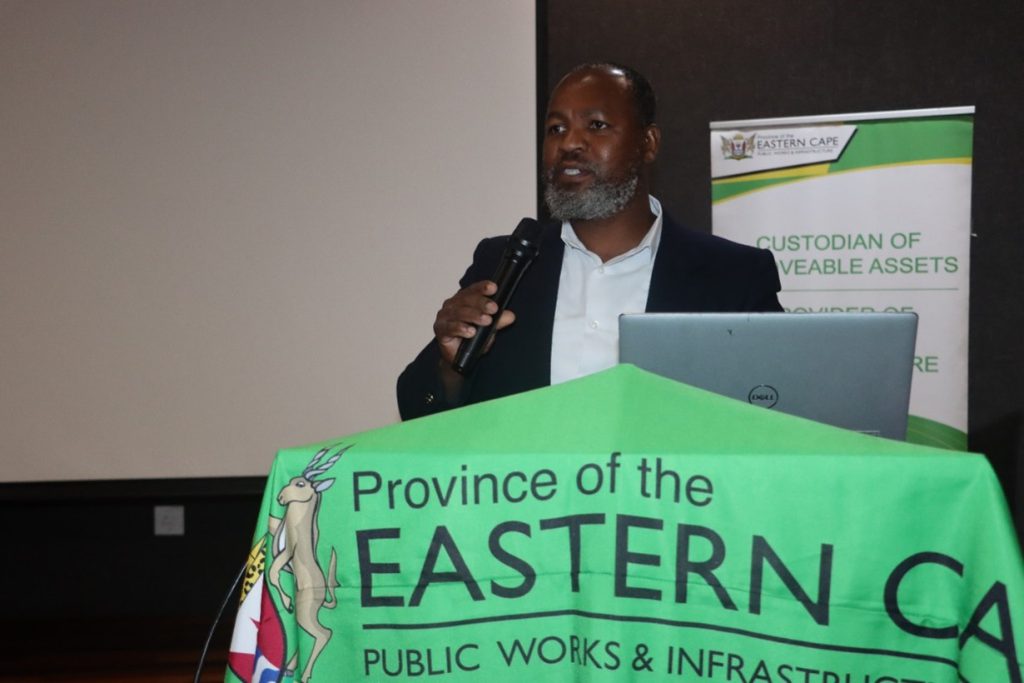
Mzie Dingwayo, Director: Human Resource Utilisation and Capacity Development acknowledging guests and opening the session.
The National Department of Public Works and Infrastructure with the Provincial Department of Public Works and Infrastructure in collaborations with the Council for the Built Environment (CBE) hosted a stakeholder engagement session to develop the Built Environment Professionalisation and Skills Development Strategy for the Public Service.
Mzie Dingwayo, Director of Human Resource Utilisation and Capacity Development, who was the programme director said, “The process for developing the strategy required inputs from stakeholders in order to produce a holistically strategy, responsive towards the BE Sector demands.”.
Mzie added that the Department together with is committed to collaborate the Council for Built Environment will continue with the implementation of Candidacy Programme.
Informed by the various inputs, as well as a policy revision of various documents and strategies, the DPWI and the CBE will submit the strategy with the following recommendations and related actions.
Thandeka Msibi, Director of Capacity Building from National Department of Public Works and Infrastructure said the Built Environment Professionalisation and Skills Development Strategy for the Public Sector is framed around four pillars;
- a transformed built environment;
- fit-for-purpose professionals;
- innovative thinkers that are grounded in inclusive approaches and embrace indigenous knowledge; and
- a futuristic approach in the delivery of infrastructure and development of sustainable cities, towns, and villages”.
Thembakazi Moya, Executive Manager from the Council for Built Environment said the strategy is framed around key tenants of the Cabinet approved “National Framework towards Professionalisation of the Public Sector:
- Professionalisation (the discipline): which means working in a way that demonstrates superior levels of acquired knowledge, skills and competence as well as demonstrating exemplary conduct, with a commitment to the profession and its code of conduct.
- Professional (the individual): which entails a high work ethic and adherence to standards and principles of specific work discipline and context, including qualifications, skills, competencies and values.
- Professionalism (the sector): which entails subjecting all built environment graduates to a uniform dispensation of professional registration and regulation, as well as recognising the various professional categories within the sector, subjecting them to registration with regulated professional bodies.
Twelve interventions were analysed and discussed during the deliberation and all the attendees were requested to engage and submit inputs in writing so that they can be captured correctly.
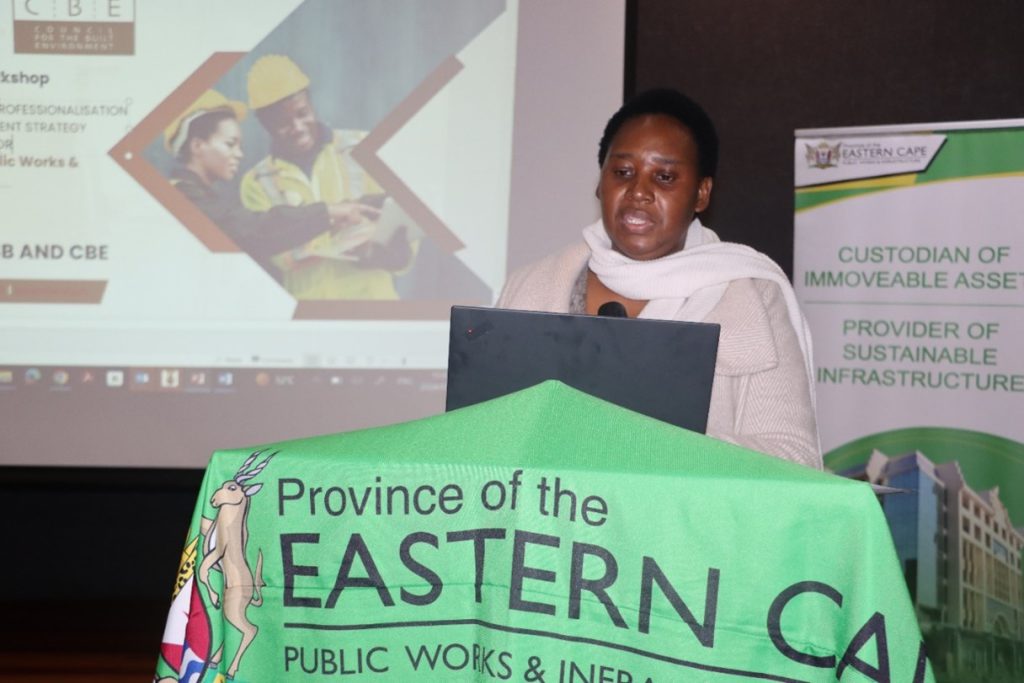
Thandeka Msibi, Director: Capacity Building – National Department of Public Works and Infrastructure giving the purpose of the day.
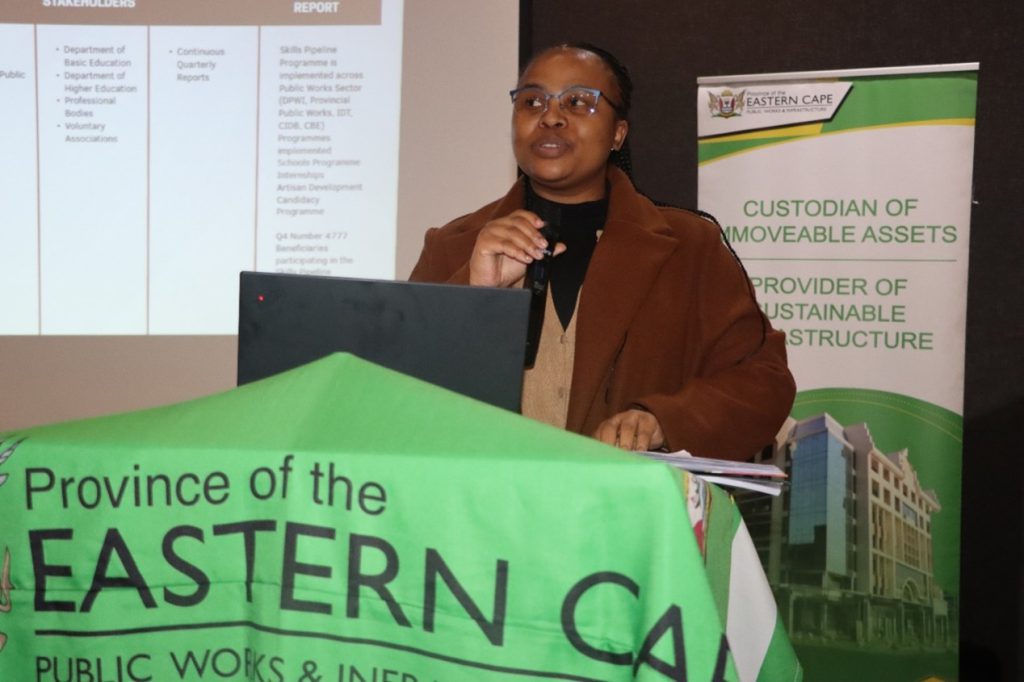
Thembakazi Moya, Executive Manager from the Council for Built Environment providing insight on developments of the Built Environment Professionalization and Skills Development Strategy.
